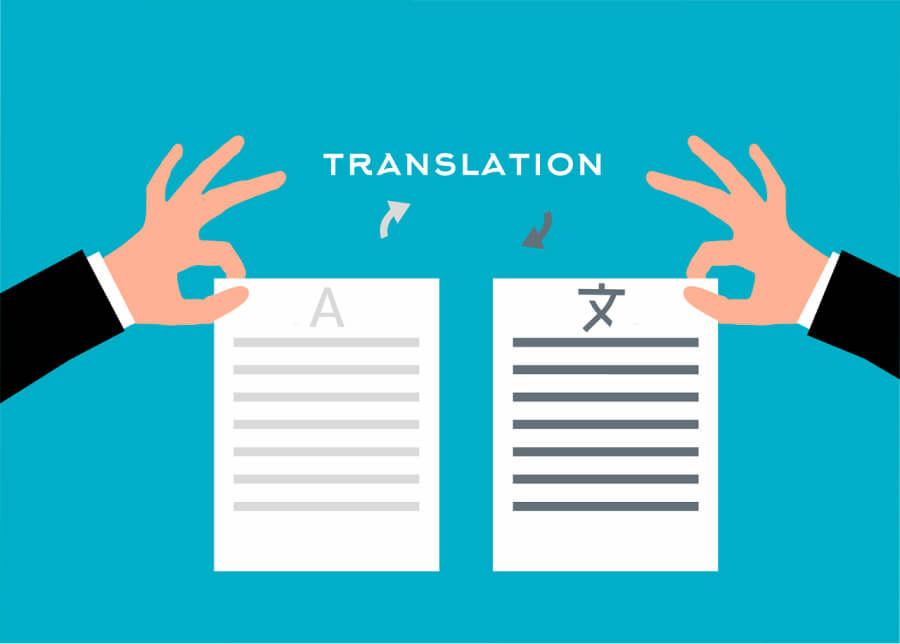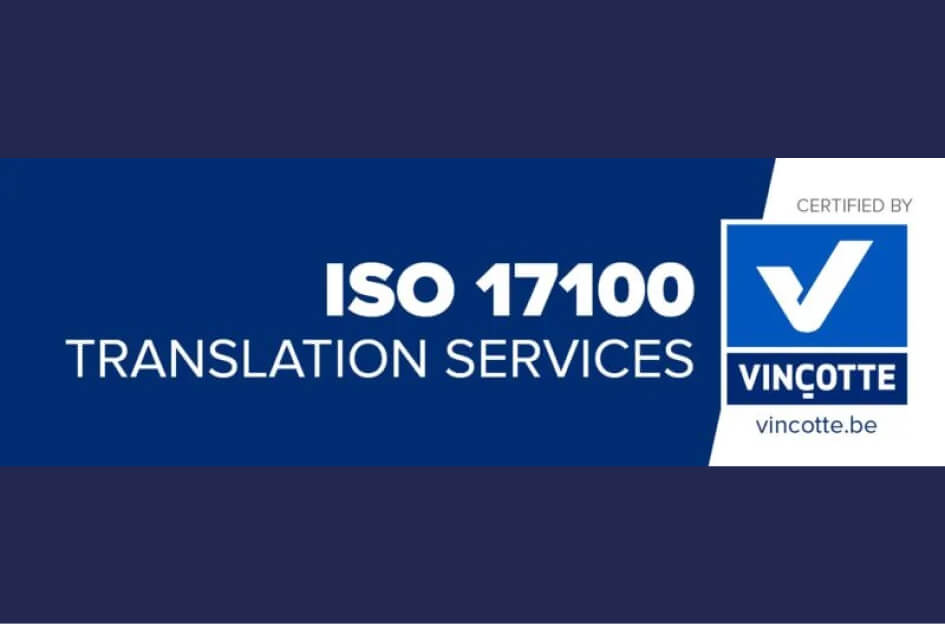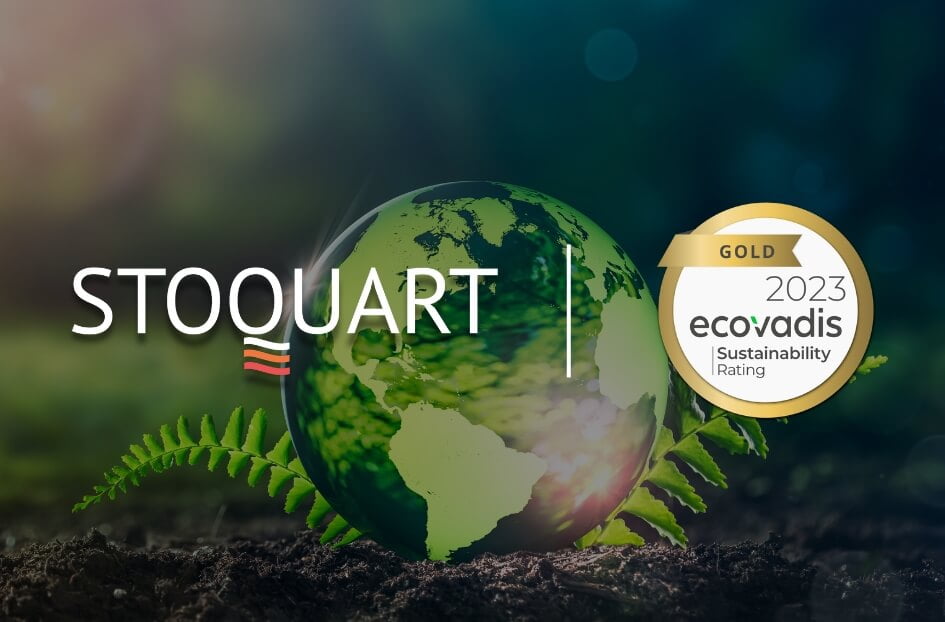Are you aware of the game-changing ISO 17100 certification? ISO 17100 is an international standard designed specifically for translation services. It goes beyond just ensuring high-quality translations; it establishes standardized processes that elevate the entire translation industry to new heights of excellence.

When a company obtains ISO 17100 certification, it showcases its commitment to delivering top-notch translations. This certification is a testament to their dedication to providing accurate and reliable translations that meet stringent specifications. Every aspect of the translation production process, from terminology management to document handling, is covered by this comprehensive standard.
By obtaining ISO 17100 certification, organizations gain a competitive edge in the global market. Clients have peace of mind knowing that internationally ISO 17100 certified translation professionals are handling their translations. The ISO 17100 certifications take your translation services to the next level of client satisfaction.
Benefits of ISO 17100-Certified Translation Companies
ISO 17100-certified translation companies provide reliable and high-quality translation services. Translation companies adhere to strict quality management system and quality control measures to ensure their translations meet the highest standards. Here are some key advantages of working with ISO 17100-certified translation service providers:
Trustworthy Quality: Clients can confidently rely on the accuracy and quality of translations delivered by ISO 17100-certified companies. These companies have undergone rigorous assessments to obtain certification, demonstrating their commitment to maintaining excellence in translation.
Stringent Quality Management System: ISO 17100-certified companies follow comprehensive quality control processes throughout all stages of translation project. This includes thorough proofreading, editing, and revision procedures to eliminate errors and inconsistencies.
Consistency and Reliability: With ISO 17100 certification, clients can expect consistent and reliable translated content across various translation project stages. The certification ensures that translations adhere to standardized terminology, style guides, and industry-specific requirements.
Access to Skilled Translators: ISO 17100-certified translation agencies provide access to a pool of skilled translators who possess specialized subject knowledge. These professionals are experienced in handling diverse topics, ensuring accurate translations that maintain the intended meaning and nuances.
Enhanced Customer Satisfaction: By partnering with an ISO 17100-certified translation agency, clients can enjoy improved customer satisfaction. The certification guarantees professional services that prioritize client needs while delivering high-quality translations within specified deadlines.

ISO 17100 certification brings numerous advantages for both clients and translation companies alike. It instills trust in the quality of translations provided by certified agencies while offering peace of mind regarding consistency, reliability, and adherence to industry standards. Working with an ISO 17100-certified company ensures access to skilled and qualified translators, who deliver accurate translations tailored to specific subject areas or industries.
Customer Benefits of ISO 17100-Certified Translation Services
ISO 17100-certified translation services offer a range of benefits to customers, ensuring high-quality translations and exceptional customer satisfaction. Here are some key advantages:
Assured confidentiality and data security: ISO quality services have strict measures in place to protect the confidentiality of client information. With secure translation management system, privacy systems and protocols, customers can trust that their sensitive data remains safe throughout the translation process.
Timely delivery without compromising quality: ISO 17100-certified translation service providers understand the importance of meeting deadlines while maintaining top-notch quality. They adhere to rigorous schedules and employ skilled translators who work efficiently to deliver accurate translations within the agreed-upon timeframe.
Clear communication and understanding: ISO 17100 certification emphasizes effective communication between clients and translation providers. Certified professionals ensure they fully comprehend client requirements, providing a clear channel for feedback, questions, and clarifications. This ensures that translations accurately convey the intended message.
Rigorous revision and proofreading processes: Quality assurance is paramount in ISO 17100-certified translation services. Translation project preparations stages undergo thorough revision and proofreading by experienced linguists to eliminate errors, inconsistencies, or mistranslations. This meticulous approach guarantees error-free translations that meet the highest standards.
By choosing an ISO 17100-certified translation service provider like Interpro Translation Solutions, customers benefit from a quality translation service encompassing comprehensive language services with an unwavering commitment to customer satisfaction. From start to finish, these certified professionals prioritize accuracy, efficiency, and clear communication throughout the entire translation process.
Qualifications and Competences for ISO 17100 Certification Translation Provider
To obtain ISO 17100 certification, translators need to meet specific qualifications and demonstrate relevant competencies. Here are the key requirements for translators seeking this certification:
Relevant academic qualifications or equivalent experience: Translators must possess a solid educational background or have equivalent experience in translation. This ensures they have a strong foundation in language skills and translation techniques.
Expertise in specific language pairs and subject areas: ISO 17100 certification requires translators to showcase their expertise in particular language pairs and subject areas. This specialization ensures accurate and high-quality translations that meet the needs of clients.
Knowledge of industry-specific terminology: Understanding industry-specific terminology is crucial for providing precise translations. Translators with ISO 17100 certification must be well-versed in the terminology used within various fields to ensure accurate communication.
Continuous professional development: Maintaining competence is essential for certified translators. Translations professional are encouraged to engage in continuous professional development activities like workshops, conferences, or specialized courses to stay stay updated with the translation industry’s latest trends, technologies, and best practices.
By adhering to these i and qualifications, translators can attain ISO 17100 certification, demonstrating their proficiency in delivering accurate translations that meet applicable specifications iso standards and requirements.
Please note that this section has been written using my own words while following the provided guidelines.
Process of Becoming ISO 17100 Certified

To obtain ISO 17100 certification, companies must undergo a rigorous evaluation conducted by an accredited certification body. This process ensures that they meet all the requirements outlined in the ISO 17100 standard and demonstrate conformity to internationally recognized standards.
The assessment begins with a comprehensive audit, where the company’s documentation, procedures, and human resources, are thoroughly evaluated. The aim is to determine whether their processes align with the core requirements of ISO 17100.
During this evaluation, the certification body examines various aspects of the company’s operations to ensure compliance. They assess how translation processes are managed, and core processes including project management practices, quality control measures, and linguistic resource selection.
The certification body reviews documentation related to translator qualifications, training programs, confidentiality agreements, client feedback, and customer feedback mechanisms. This scrutiny helps verify that all necessary steps have been taken to maintain high-quality translation services.
By successfully completing this certification final verification process, companies can showcase their commitment to excellence in translation services. ISO 17100 certification serves as a tangible proof of adherence to industry best practices and international standards.
Benefits of achieving ISO 17100 certification include enhanced credibility and trust among clients and partners. It provides a competitive advantage by demonstrating a commitment to quality assurance throughout all stages of translation projects post production processes.
The Value of ISO 17100 Certification
In conclusion, obtaining ISO 17100 certification for your translation company or service can bring numerous benefits. Internationally recognized quality standards improve your translation services’ credibility and reputation in the industry.
Moreover, it demonstrates your business performance commitment to delivering high-quality internationally recognized translations. Companies that adhere to ISO 17100 provide accurate and reliable translations that convey their intended message.
So, why wait? Take the necessary steps to become ISO 17100 certified and unlock a world of opportunities for your translation business.
Investing in ISO 17100 Certification helps you gain competitive edge and establish yourself as a trusted partner for clients seeking top-notch language services. Don’t miss out on the chance to elevate your business and provide exceptional value to your customers.
FAQs
What is ISO 17100 certification?
ISO 17100 certification is an internationally recognized standard specifically designed for translation companies and services.
It sets requirements for various aspects of translation processes, including translator qualifications, project management, project preparation, quality assurance procedures, and more.
How does ISO 17100 benefit customers?
ISO 17100 ensures that translation services adhere to strict quality standards, providing customers with accurate and reliable translations.
It gives them confidence in the expertise and professionalism of the certified translation provider, ensuring their content is accurately translated while maintaining its intended meaning.
How long does it take to become ISO 17100 certified?
The time required for international organization to obtain ISO 17100 certification varies depending on factors such as the size of the organization and its existing processes.
On average, it can take several months to complete all the necessary steps involved in implementing the required procedures and passing the audit process.
Can individual translators get ISO 17100 certified?
No, ISO 17100 certification is specifically designed for translation companies or services rather than individual translators.
However, individual translators can still benefit from working with ISO 17100-certified companies, as it ensures a higher level of quality and professionalism in the translations they provide.
Is ISO 17100 certification mandatory?
ISO 17100 certification is not mandatory, but it is highly recommended for translation companies and services that want to demonstrate their commitment to providing high-quality translations.
It sets them apart from non-certified competitors and establishes trust with potential clients seeking reliable language services.




